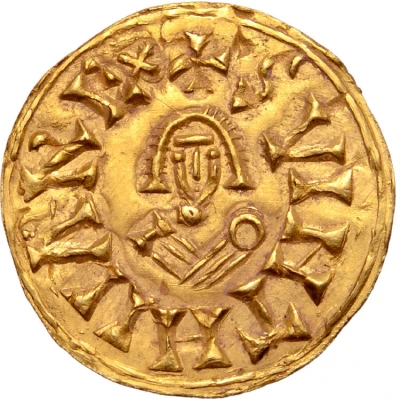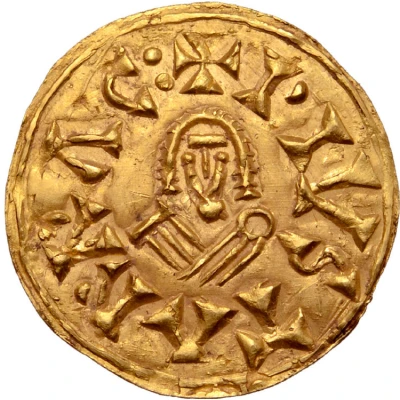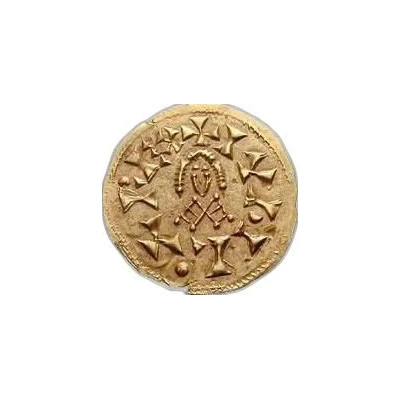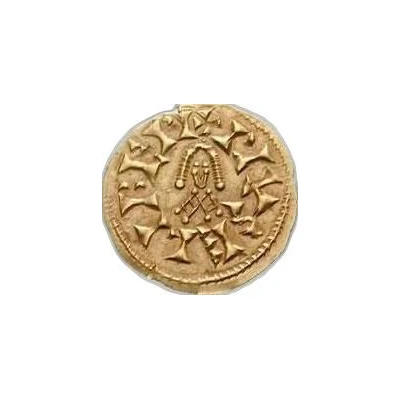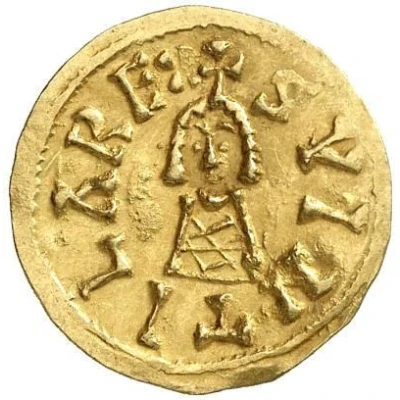
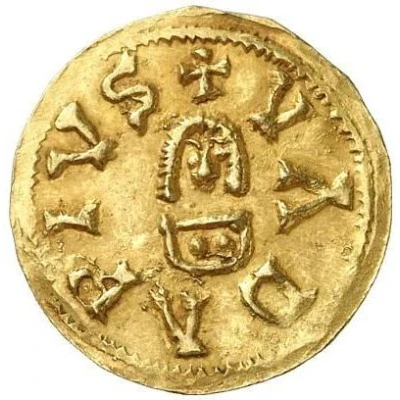

© Fritz Rudolf Künker GmbH & Co. KG, Osnabrück and Lübke & Wiedemann KG, Leonberg
Tremissis - Suintila Vada
| Gold | 1.40 g | 20 mm |
| Issuer | Visigothic Kingdom |
|---|---|
| King | Suintila (621-631) |
| Type | Standard circulation coin |
| Years | 621-631 |
| Value | 1 Tremissis |
| Currency | Tremissis |
| Composition | Gold |
| Weight | 1.40 g |
| Diameter | 20 mm |
| Shape | Round (irregular) |
| Technique | Hammered |
| Orientation | Coin alignment ↑↓ |
| Demonetized | Yes |
| Updated | 2024-10-04 |
| Numista | N#346975 |
|---|---|
| Rarity index | 100% |
Reverse
Facing bust
Script: Latin
Lettering: + VADA PIVS
Translation: Pious Vada
Comment
Reference #431A in Pliego, Ruth. (2012). La moneda visigoda: Anexo I. SPAL Revista de Prehistoria y Arqueología de la Universidad de Sevilla. doi: 21. 10.12795/spal.2012.i21.12.Interesting fact
The Visigothic Kingdom's Tremissis - Suintila (Vada) coin, made of gold and weighing 1.40g, is interesting because it was used as a form of currency during a time of significant cultural and political change in Europe. The Visigoths were a Germanic tribe that had conquered much of the Roman Empire, and their kingdom lasted from the 5th to the 8th century. This coin, minted during the reign of King Suintila (also known as Swinthila or Svinthilas) from 621 to 631, would have been used in trade and commerce during a time of great upheaval and transition. It is a tangible reminder of the complex history of Europe during the Early Middle Ages.
